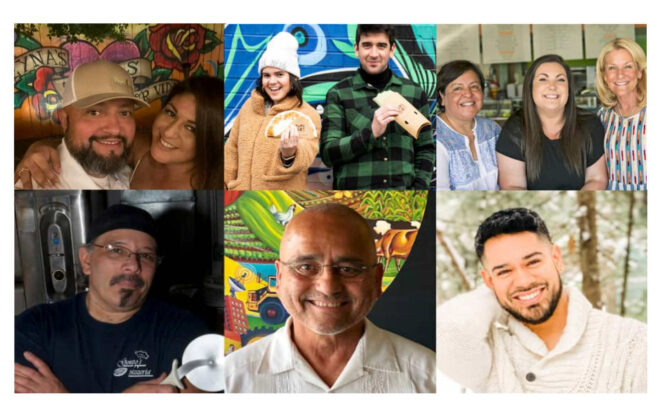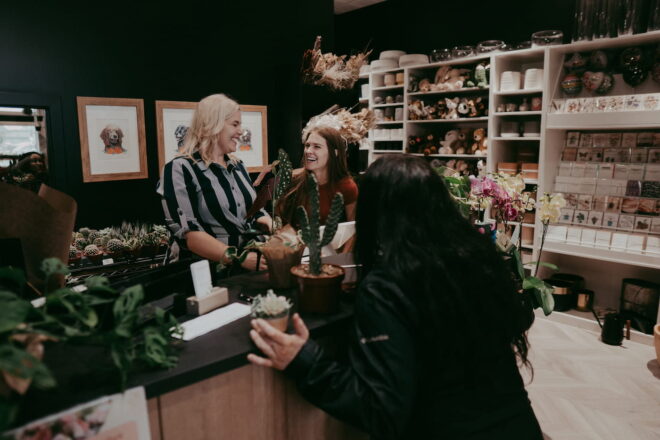No Limits Cafe
Editorial Team
12 min read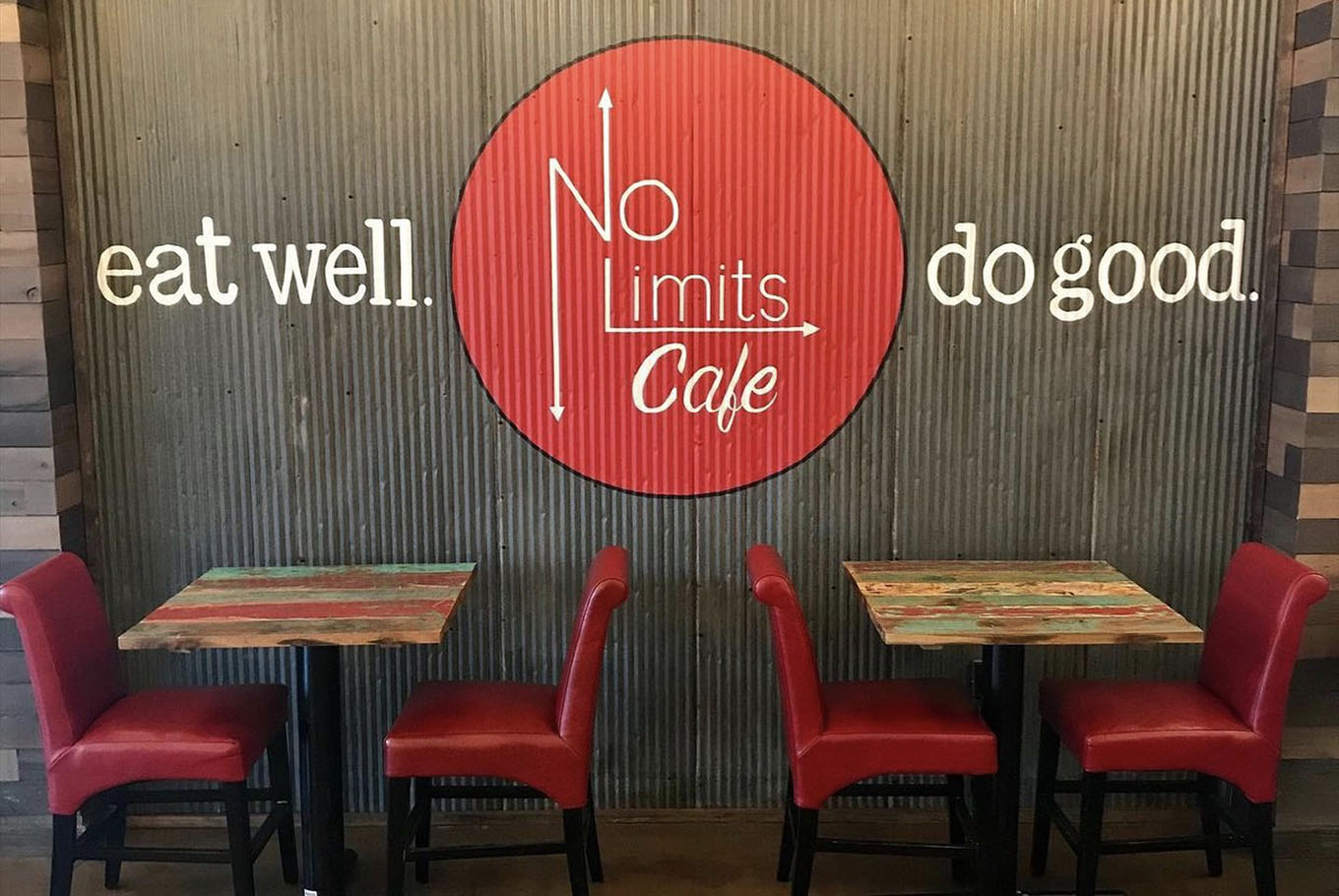
This week, in celebration of National Disability Employment Awareness Month, we sit down (virtually of course) with Stephanie Cartier, co-founder of No Limits Café in Red Bank, New Jersey. She shares her heartwarming founding story and discusses the unexpected benefits of POS technology for her staff.
Clover: Wonderful to have a chance to chat, Stephanie. Tell us how No Limits Café got started.
Stephanie Cartier: Our third child, Katie, has Down syndrome. Generally, you can stay in the school system until you’re 21. So we had three years to figure out what she’s going to do when she’s 21 years old, because that’s the age that’s called “falling off the cliff” for people with intellectual disabilities. Their life as they knew it is over. There’s not much socialization, there’s hardly any employment. There are hardly any college programs. New Jersey does have day programs, but that’s not something we wanted at this time for our daughter.
We knew she could go to college; we knew she could do a lot of things. She just needed the opportunity. So my husband and I were trying to think of the things that she could do. We knew there are many, many other people with intellectual disabilities in the same boat in our county. So we said, Well, what about a restaurant? We’ve never worked in a restaurant, we just eat in them. Coincidentally, two weeks after we had that idea, Lester Holt did a story on NBC Nightly News about a restaurant in McKinney, Texas called Hugs Cafe, and we were like, Oh, that sounds like what we were talking about!
So we got in touch with them. We went there and volunteered for four days. We met with their board, and they guided us—they still continue to guide us. We thought right there, We can do this back in New Jersey! So we sat on a curb [outside the cafe] and said, okay, we’re going to do this. We sat on that curb in 105-degree heat and started putting together our name, our website, our social media, all that kind of stuff.
Clover: That’s a deeply inspiring story. So then you went home and got a location?
Cartier: It really is. And that’s how it began! We were so pumped. Yes, then we had to come home and try to find a place. We live near an area called Red Bank, with lots of restaurants and stores and people walking around, close to the river. It’s a very cute town, and we wanted to be there because there’s a lot of foot traffic. We found this restaurant that was for sale in Middletown, with a huge kitchen. In most restaurants kitchens are small, because that’s not where you make the money. So we ended up buying the restaurant and we rent it to No Limits Cafe for free. We gutted the whole place and hired 34 employees with intellectual disabilities.
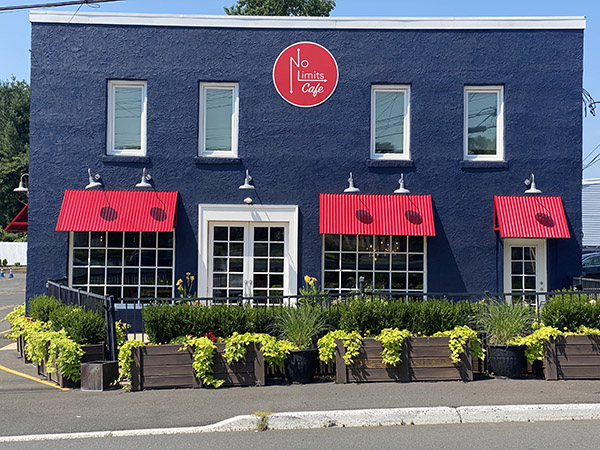
Clover: And when did the cafe open?
Cartier: We opened two and a half weeks before we had to shut down for COVID. And when we were under construction, that’s when we did all of our due diligence looking for a POS system. We had gone to the The Fancy Food Show at the Javitz in New York. There were POS systems and stuff, but it was confusing. But a friend of my husband’s knew people at Clover, so we sat down with their programmers and their marketing people, and we told them what we wanted and they made sure we got it. We’re still in contact—I just called them last week—it’s a nice relationship.
Clover: We’re so happy to hear that. You have a number of different Clover devices, correct?
Cartier: Yes, we have a Clover Station, one Station Solo, and we have four Flexes. Each of our servers use the Flexes to take orders, and for payment, they sometimes take them on the Flex. But because a lot of our employees don’t understand money, in order for us to have better control we take all of the credit card and cash payments on the Solo.
We also use the Clover online ordering system, the one that’s built into Clover. We actually picked it because it was free and we’re a nonprofit.
Clover: And how is that working for you?
Cartier: We love it. A lot of our customers say it’s one of the best, and easiest, online ordering systems that they’ve come across. And you know, we were not going to get into online ordering or takeout till after we got ourselves established, but we had to pivot because of COVID and because we didn’t have indoor dining.
I have to say, the Clover online ordering, it’s really been great. Customers can order ahead of time. During the [2020] holidays, we sold I think 6,000 hot chocolate bombs—people would order for pickup. It’s a good service.

Clover: What would you say was your biggest challenge that you had to face opening and running the cafe?
Cartier: I think the biggest challenge was, and still is, showing the community at large what people with intellectual disabilities are capable of, which is everything you and I [can do]. They might need a little more time, a little more help to get there, you know, but, I mean, some things I’m really good at, and some things I’m horrible at, and it’ll take me a long time to get to where I’m good at. Same for them. So I think that has been our biggest hurdle. We have 34 adults with intellectual disabilities and only three paid neurotypical employees. I don’t get paid because I’m the founder. We use volunteers to help us—some days we have five volunteers, some days we have one volunteer. It depends who signs up.
The employees make all the food, they do everything: chopping, dicing, slicing, cooking, with the guidance of our chef.
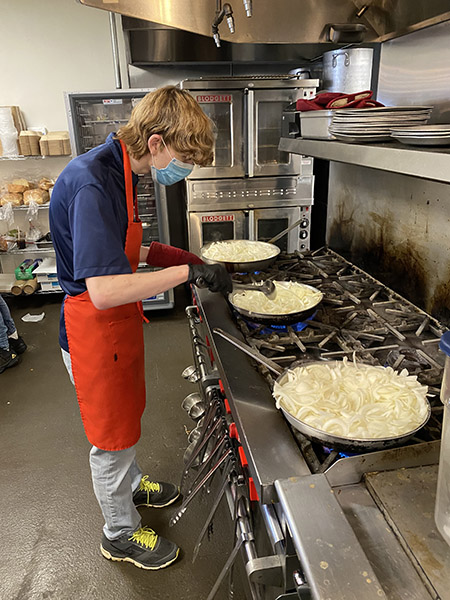
Clover: That’s great to hear. You’re certainly keeping your staff busy!
Cartier: People have what’s called soft bigotry of low expectations. I myself, as a parent of a child with an intellectual disability, had it too when my daughter got into college. I was like, Oh my gosh, in two weeks she’s going to be [back] home. She’s not going to be able to navigate the campus, she’s not going to be able to do her laundry, she’s not going to be able to cook for herself because they’re all things that I didn’t let her do because it was faster for me, less frustrating for her.
But guess what, she’s going to be a junior, and she did it because somebody gave her the opportunity. So that’s what we’re doing. We’re giving people the opportunity to show everyone what they’re capable of. I think that is the biggest hurdle. We get a lot of comments like, Well what if they get burned? Or what if they get cut? We’re like, Well, it’s a restaurant, people are going to get burned and they are going to get cut. We hope it doesn’t happen, but it means if they get burned or cut, it will probably only happen once and they’ll learn so that they won’t get cut or burned again, like everybody else.
I think for me personally, the biggest hurdle was setting up a kitchen because I’d never worked in a restaurant. Imagine, I get in and say, This looks great! working with an architect. When we hired the chef, they were like, Who set up this kitchen? [laughs]
I make a lot of mistakes, but we like mistakes here because you learn from them.
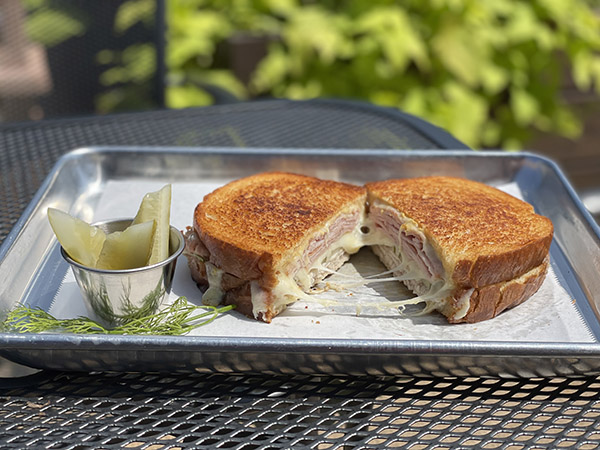
Clover: It seems your employees with disabilities have no issue using this technology. What has that done for your staff—and have your customers noticed?
Cartier: When we first sat with the First Data people in New York, we wanted pictures, images. [At the time] those were not available. And we thought, How are we going to do this without pictures? Again, soft bigotry of low expectations. But our employees rocked. Before we had the Clover Flexes, they were taking orders with a clipboard and paper. And when they got Clover Flexes, it was unbelievable because these people, just like us, they can use technology. They have iPhones, iPads, computers, so for them, I have to say, it was probably a lot easier to learn than it was for me. Some of our employees have mobility issues, and the Clover Flex has been amazing because instead of writing they just have to hit a button. If you hit the wrong button, like if you shake, it’s easy to fix it.
I have to say, I think that using [Clover’s technology] has empowered them because when customers come in, they’re surprised. We get a lot of comments like, The servers here are amazing! Better than a lot of restaurants. With the Flex, I could see people saying, Okay, I’ll go slower and [my staff] say, No, you don’t have to go slower. I got it, I got it.
I think it’s helped them to feel empowered, because we tend to treat people that we think are different, like they’re different. They are typical servers, and they do fine on the Flex, just like you or I would. So it’s not just empowering to the employee, it’s also amazing for the customers to see. A lot of the customers say Oh, I would never be able to do that on the computer. Our employees are also really good at pivoting—for example once an employee dropped one of our Flexes and it stopped working. They were able to go to the Solo and just do everything from there. They interface back and forth between the table and it’s seamless.
And that’s exactly what part of our mission is: awareness of their capabilities, their potential.
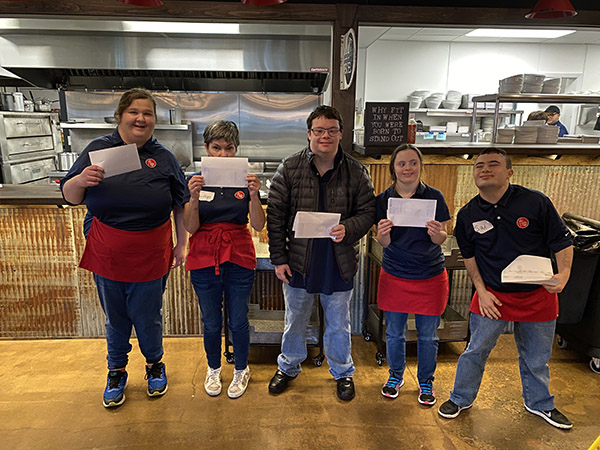
Clover: How big of a role do you think this kind of technology plays in your mission?
Cartier: Having the Clover system makes us legit, honestly. Like we are a real restaurant. If our employees were to go work elsewhere, they would probably assimilate faster to whatever [technology] another restaurant may have. As you know, technology is where everything’s at, and that shows our customers that our employees are where it’s at too. Like, they’re current, they’re with the times and they can use the technology and use it well. I keep repeating myself, but it empowers our employees when they know that if they were to go work at another restaurant and they had to use a different POS system, they would be okay. It wouldn’t be scary, because they know that they can do it. And I think that is really cool.
Clover: Moving forward, how do you see the future?
Cartier: So what has been happening is that a lot of other restaurants, even in New York City, have been coming to us and saying, We want to hire people with intellectual disabilities. We had a big restaurant group come in last week from New York City, and they were like, Oh my gosh, they’re using the Flexes? I’m like Yeah, they are! and they’re like, Oh! And I say, Yes, they can be servers in your restaurant.
A lot of places think about hiring people with intellectual disabilities as dishwashers or in the kitchen doing prep work, but they don’t realize these people can really do a lot more.
Ironically, phase two of No Limits Cafe was going to be an academy for three nights a week for people with intellectual disabilities that don’t work here. One night was going to be front of the house, including Clover; one night was going to be back of the house; and one night for social skills. We would have all these restaurants that agreed to hire people we train. But because of COVID we had to put those plans on hold and right now we’re busy playing catch up.
We will have our academy one day. Right now, ironically, many restaurants are coming to us asking us for our employees—and nobody wants to go! They’re all happy here. I think what’s happening now is because people are having a difficult time finding employees, now they’re considering a marginalized population that they normally would never even have given a thought to.
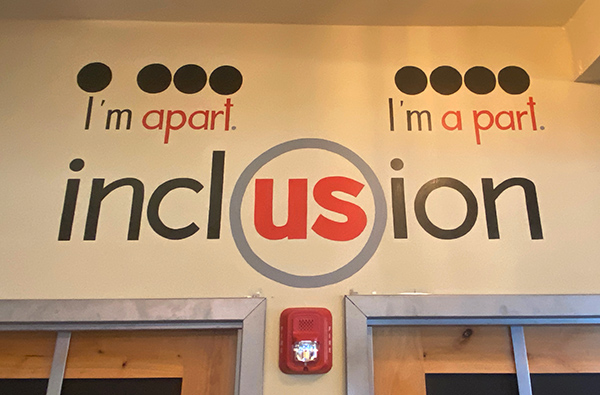
Clover: In a way, that is a silver lining of this pandemic, isn’t it.
Cartier: Yes, it’s ironic that COVID is what’s helping this situation… If we can help anybody with hiring people with intellectual disabilities, and help change the unemployment rate—about 80 percent [of people with disabilities] are unemployed—that would be good. Like I said, we get a lot of feedback from restaurants and people coming, calling, emailing, asking Do you have somebody for me?
But it has to be done correctly, of course. I don’t want the employees to fail. I think things are moving in a positive direction for people with intellectual disabilities in the workforce, because of COVID—at least in the restaurant business, because people need people. And that’s why we’re here.
Read more of our Meet the Merchant stories for real-life stories of small businesses in action all over the country. Want to be featured in this series? Fill out our questionnaire, and if we can include you in a future interview cycle, we’ll send you an invitation!
Related Posts
Celebrating Hispanic Small Businesses
3B’s Flowers
Popular Topics
Stay in touch
Sign up and learn more about Clover.
Thank you for your subscription!
More posts about starting a small business
eBook
